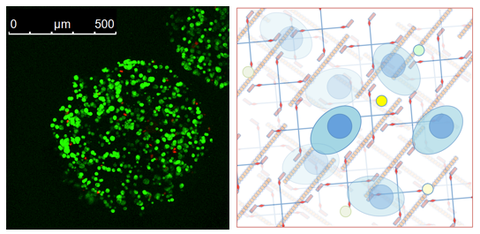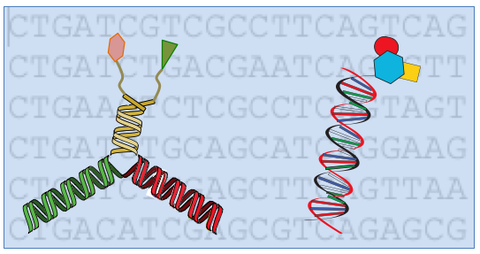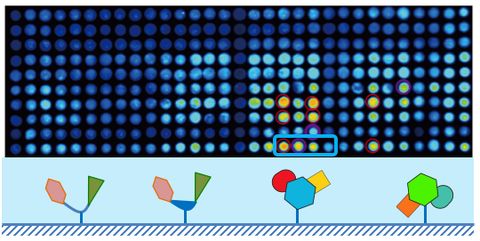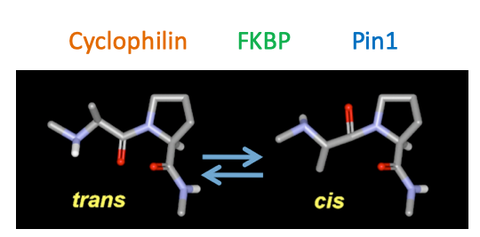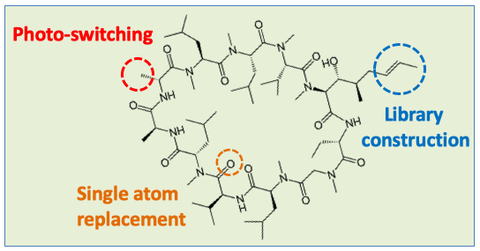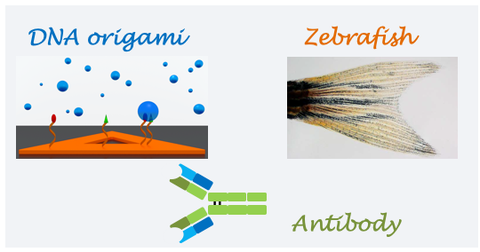Research
We use chemical methods to develop tools for biological and biomedical studies and applications. To understand biomolecular interaction and to discover new interacting biomolecules are central to our research.
Self-assembled biomatrices: We design and synthesize self-assembled biomaterials, for understanding the dynamics of extracellular matrices, to recapitulate and model various biological niches, and to develop novel therapeutical tools.
DNA-encoded chemical library: by tagging millions to billions of different chemical structures with DNA strands as barcodes, we can mimic the selection process of biology to discover new bioactive compounds.
Small molecule array: We develop fully automated parallel synthesis technology. Up to 40,000 compounds (small molecules, peptides, peptideomimetics) on a glass slide (~ 5 cm2) can be synthesized in 2-5 days. Upon coupling the synthesis with machine learning, we can explore chemical space at an unprecedented pace for the discovery of new drugs and materials.
Peptidyl-prolyl cis/trans isomerase: We study the isomerization of peptidyl-prolyl bond, one of the smallest chemical changes in the biological world.
Molecule design: Through chemical modification of bioactive molecules (e.g. immunosuppressive drugs), we alter their biodistribution and responsiveness.
Method developments: We are open for collaborations, to use chemical biology as a tool to facilitate the researches in other fields.

